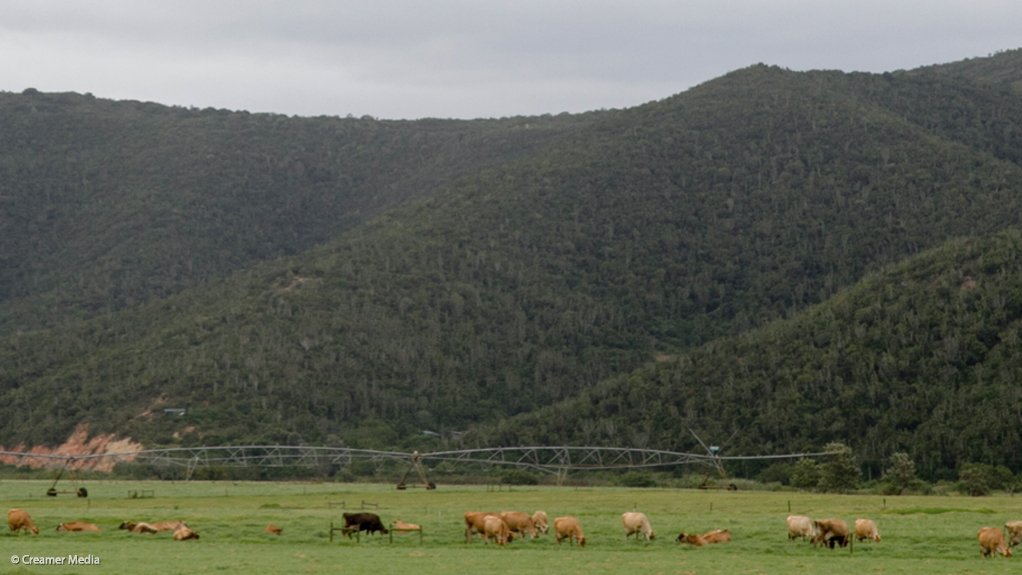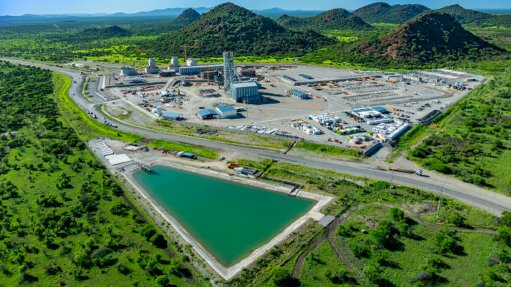African CEOs keen to expand agribusinesses into other African countries
African agribusiness CEOs are very positive about the possibility of expansion into African countries outside their own, with 72.7% indicating that they would pursue such opportunities, finds PwC’s Agribusinesses Insights Survey 2014/2015.
“African CEOs identified the following as countries where they are planning to invest: Ethiopia, Angola, [the Democratic Republic of Congo], South Africa, Zambia, Zimbabwe, Mozambique, Lesotho, Botswana and Tanzania,” noted PwC national agribusiness industry leader Frans Weilbach in a statement this week.
“Access to existing and new markets allows agribusinesses to broaden their reach and increase their potential to sell products and services to more customers,” he said.
Africa was also becoming an increasingly attractive hub for foreign investors in light of various economic, political and social reforms, resulting in an improved business environment that was conducive to foreign direct investment.
Therefore, as barriers to boosting agricultural output in Africa were broken down and agricultural output was, subsequently, increased, ample opportunity was expected for the manufacturing and marketing of agricultural products such as fertilisers, pesticides and seeds, as well as a demand for food-processing services such as grain refining.
The biggest challenges to business growth cited by CEOs were the scarcity of natural resources, access to technology, climate change, access to finance, labour unrest, regulatory restrictions and energy costs.
African agribusinesses also believed that there was a long way to go towards better support from government in the sector.
“For instance, businesses are of the view that government does not offer sufficient tax incentives to ensure international competitiveness. Furthermore, they say government is not doing enough to improve infrastructure. It is, however, encouraging to note that the South African government has recently included ‘revitalising agriculture’ as one of its nine strategic priorities to be pursued this year,” PwC explained.
Weilbach added that public–private partnerships throughout the value chain as a whole were key to take the African agricultural sector, with its “enormous potential”, to the next level.
PwC director of Ghana Sarah-Mary Frimpong stated that the main threats and challenges to growth in the agricultural sector in Ghana included the scarcity of capital, the lack of infrastructure development in rural areas and the high cost of farming inputs and utilities.
“However, there is collaboration between the government and the private sector to implement certain programmes that will address these challenges, increase yields and enhance productivity,” she pointed out.
PwC Mauritius country senior partner André Bonieux said the country’s agribusiness sector had undergone major reforms, in particular the sugar cane industry, which had shrunk in size to 415 000 t.
He noted that there were a number of global and economic forces affecting the demand for sugar – mainly the price of sugar, which had been falling throughout 2014.
“The recent weakening of the euro, the currency of the main export market for the island’s sugar, has added to the woes of the local industry. We expect yet more restructuring to happen in the industry, with farmers probably exiting their lower-yielding fields [and implementing] new cost-cutting programmes,” Bonieux advised.
Meanwhile, when surveyed, agribusinesses also indicated that they had maintained focus on risk management, with the majority of business leaders (83.3%) periodically conducting a formal risk assessment. It was also encouraging to note that the majority of business leaders (62.5%) prepared an integrated report that included sustainability reporting.
CEOs noted that employee turnover, internal human resource capacity, labour unrest and communication between employees and management were the most challenging human resources matters.
To address these challenges, PwC suggested that the agricultural sector proactively address future concerns; both the private and public sectors had to make an effort to develop appropriate strategies.
Climate change was “getting closer to home” as it started to directly influence the essential natural resources that agribusinesses needed to operate sustainably, with the scarcity of natural resources posing a significant challenge.
“Just over half of participating agribusiness leaders (54.5%) indicated that they are considering investment in renewable energy, while 45.5% have already done so,” PwC found, adding that the main forms of renewable energy that agribusinesses had invested in were solar energy and biogas.
To remain competitive, agribusinesses also needed to be aware of and respond effectively to the rapid pace of technological change in the agricultural sector globally.
Farm-level data and precision farming had played an important role in operations over the past ten years and, in the last three years, precision farming principles had been integrated with new technologies. These included cloud computing, data mining, modelling and neural networks, all of which, PwC advised, could be applied effectively to agriculture on a new and higher level of “artificial intelligence farming”.
“The megatrends may be perceived as being far removed from us here in Africa, but their significance should not be underestimated. They will define our future and we will do well to pre-empt their impact rather than sit back and wait for the results,” concluded Weilbach.
PwC's Agribusinesses Insights Survey 2014/2015 was carried out among a group of African agribusinesses that were mainly focused on delivering agricultural and related services to primary producers. The survey focused on providing African agribusinesses with insights into industry trends, while simultaneously emphasising the impact of global megatrends on their businesses.
Article Enquiry
Email Article
Save Article
Feedback
To advertise email advertising@creamermedia.co.za or click here
Press Office
Announcements
What's On
Subscribe to improve your user experience...
Option 1 (equivalent of R125 a month):
Receive a weekly copy of Creamer Media's Engineering News & Mining Weekly magazine
(print copy for those in South Africa and e-magazine for those outside of South Africa)
Receive daily email newsletters
Access to full search results
Access archive of magazine back copies
Access to Projects in Progress
Access to ONE Research Report of your choice in PDF format
Option 2 (equivalent of R375 a month):
All benefits from Option 1
PLUS
Access to Creamer Media's Research Channel Africa for ALL Research Reports, in PDF format, on various industrial and mining sectors
including Electricity; Water; Energy Transition; Hydrogen; Roads, Rail and Ports; Coal; Gold; Platinum; Battery Metals; etc.
Already a subscriber?
Forgotten your password?
Receive weekly copy of Creamer Media's Engineering News & Mining Weekly magazine (print copy for those in South Africa and e-magazine for those outside of South Africa)
➕
Recieve daily email newsletters
➕
Access to full search results
➕
Access archive of magazine back copies
➕
Access to Projects in Progress
➕
Access to ONE Research Report of your choice in PDF format
RESEARCH CHANNEL AFRICA
R4500 (equivalent of R375 a month)
SUBSCRIBEAll benefits from Option 1
➕
Access to Creamer Media's Research Channel Africa for ALL Research Reports on various industrial and mining sectors, in PDF format, including on:
Electricity
➕
Water
➕
Energy Transition
➕
Hydrogen
➕
Roads, Rail and Ports
➕
Coal
➕
Gold
➕
Platinum
➕
Battery Metals
➕
etc.
Receive all benefits from Option 1 or Option 2 delivered to numerous people at your company
➕
Multiple User names and Passwords for simultaneous log-ins
➕
Intranet integration access to all in your organisation




















